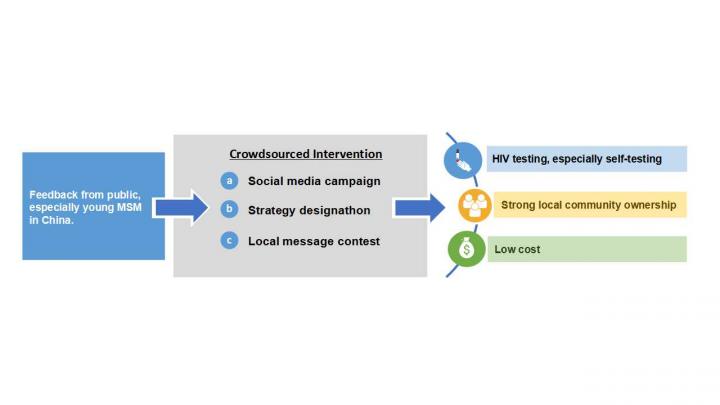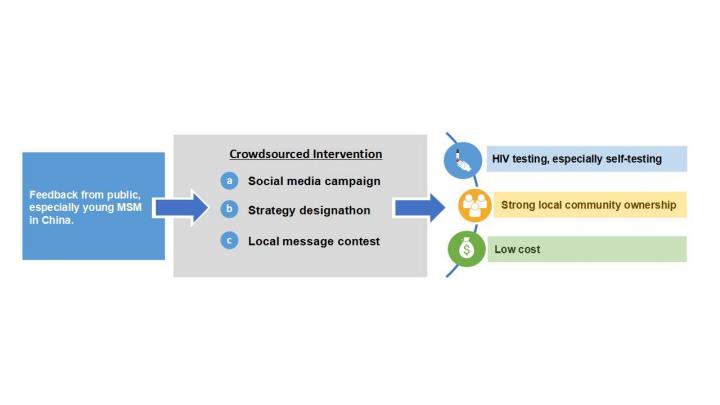
Credit: Shufang Wei, UNC Project-China
Chapel Hill, NC – Approximately 14 million people living with HIV worldwide have yet to be tested, impacting the effectiveness of HIV treatment and prevention programs. Testing rates are especially poor among at-risk groups in low- and middle-income countries. In China, infection rates among men who have sex with men (MSM) remain high. Pilot trials have suggested crowdsourcing could be useful for developing photo and video campaigns that promote HIV testing. Building off this theory, researchers at the University of North Carolina at Chapel Hill investigated the effectiveness of crowdsourced campaigns and found an increase in HIV testing during the intervention period. Their results were published in the journal PLOS Medicine.
"Although crowdsourcing has been recommended as a tool for developing public health interventions, few studies have formally evaluated crowdsourcing as a way to promote health in a real-world setting," said Joseph Tucker, M.D., P.hD., the study's senior author and director of UNC Project-China. "HIV testing is an essential first step in the HIV care continuum. That's why assessing crowdsourcing as a means to motivate testing is critically important."
Crowdsourcing involves soliciting ideas from groups of individuals and then sharing exceptional ideas with the public. In this study, Tucker and his team sought input through three participatory activities – a nationwide concepts and images contest, a regional design-a-thon, and a series of local challenge contests describing personal stories about HIV testing.
The final intervention included images, a self-testing platform and local stories. Images promoting HIV self-testing were disseminated via the messaging app WeChat. This app was also used to build a self-testing platform where MSM could provide their address to receive a free oral HIV self-test. Finally, story contests organized by local health organizations featured individuals sharing their testing experiences. These stories were shared on social media.
The intervention targeted MSM in eight Chinese cities from August 2016 – August 2017. The study recruited 1,381 men with no history of HIV testing in the past three months. Most of the men were 30-years-old or younger. Tucker and colleagues discovered a 9 percent increase in HIV testing during the intervention period. The team also found the intervention particularly useful in promoting HIV self-testing.
"Our study extends previous research on crowdsourcing by using it to develop a comprehensive HIV testing service, evaluating its effectiveness in a pragmatic trial, and assessing the long-term effect of the intervention," said Weiming Tang, M.D., P.hD., M.S., first author and assistant director of UNC Project-China. "Considering our intervention engaged substantial youth in each city to provide feedback about HIV services, crowdsourcing may help to develop more youth-friendly HIV services."
###
The mission of UNC's Institute for Global Health & Infectious Diseases is to harness the full resources of the University and its partners to solve global health problems, reduce the burden of disease, and cultivate the next generation of global health leaders. Learn more at http://www.globalhealth.unc.edu.
Media Contact
Morag MacLachlan
[email protected]
919-843-5719
@UNC_Health_Care
Original Source
https://globalhealth.unc.edu/2018/08/crowdsourcing-plos-medicine/ http://dx.doi.org/10.1371/journal.pmed.1002645





